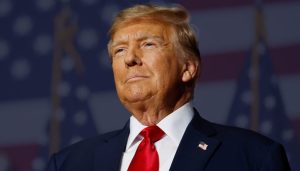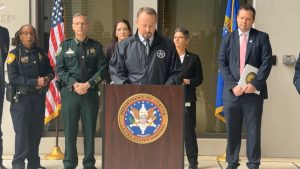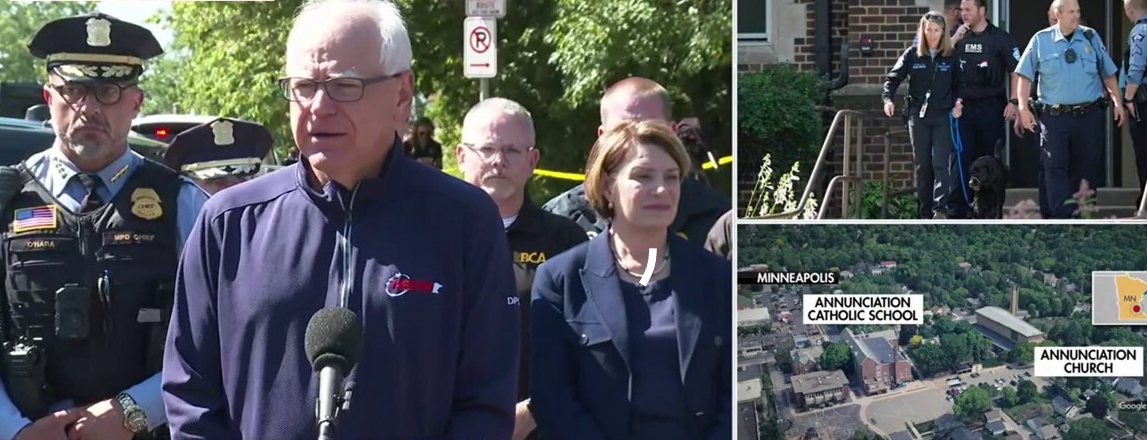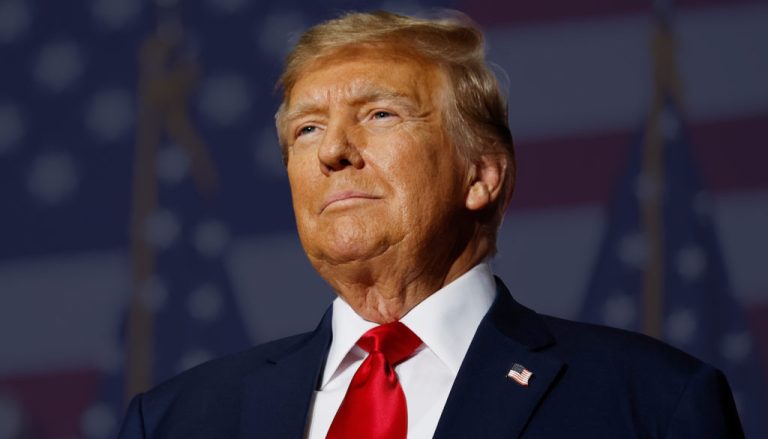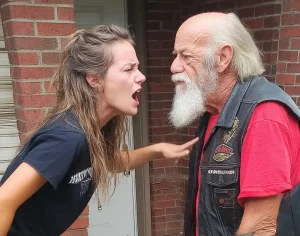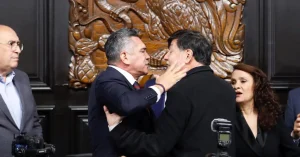The aftermath of a tragic shooting at a Catholic church in Minneapolis has ignited a firestorm of political controversy, as prominent commentators and officials trade accusations over who bears responsibility for fostering the conditions that led to the violence. What began as a community tragedy has quickly evolved into a flashpoint in America’s ongoing culture war — one that now intertwines questions of ideology, governance, and public safety.
The shooting occurred Wednesday evening during a packed evening Mass at Annunciation Catholic Church, a well-known parish in South Minneapolis. According to authorities, two children were killed and at least 18 others were injured, including 15 minors, when a gunman opened fire with a semi-automatic weapon. Witnesses described scenes of chaos and disbelief as parishioners ducked behind pews and priests attempted to lead congregants to safety through side doors.
“It was like something out of a nightmare,” said parish volunteer Catherine Mullins, who was setting up for the next service when the shooting began. “We heard the first shots and everyone started screaming. There were families everywhere — children, parents, grandparents — and no one knew what was happening.”
Within minutes, emergency responders from the Minneapolis Police Department, Hennepin County Sheriff’s Office, and federal agencies arrived on the scene. The shooter, later identified as 23-year-old Robin Westman, took his own life inside the church sanctuary as officers surrounded the building. Authorities have since confirmed that Westman acted alone.
Political Blame Game Begins
While investigators continued searching for a motive, the political reaction was swift and deeply polarized. Appearing on Fox News’ “The Ingraham Angle”, former Secret Service agent Rich Staropoli unleashed a blistering critique of Minnesota’s Democratic leadership, blaming what he described as “toxic ideological permissiveness” for creating an unstable social climate.
“This guy has gone so far out of his way to provide top cover and support for a group of people who are the most mentally unbalanced group of people in the entire world,” Staropoli said, referencing Governor Tim Walz and Minneapolis Mayor Jacob Frey. “They’ve built an environment where emotional instability and grievance politics are celebrated. That’s what happens when you make ideology the foundation of governance.”
Staropoli’s comments — particularly his repeated use of the derogatory nickname “Tampon Tim” for the governor — immediately went viral. Supporters of the former agent argued he was “saying what others were afraid to say,” pointing to what they see as permissive social policies and a lack of mental health accountability in progressive cities. Critics, however, accused him of exploiting tragedy to advance partisan narratives, calling his remarks “cruel,” “reckless,” and “deeply irresponsible.”
Democratic state lawmakers quickly condemned the segment. State Senator Erin Murphy (D–St. Paul) called the comments “an attempt to weaponize grief” and urged leaders to “focus on facts, not finger-pointing.” Murphy added, “The people of Minnesota deserve empathy and unity right now — not political opportunism.”
Questions About Motive and Identity
As the investigation unfolded, new details about Robin Westman’s background emerged. Court records revealed that in 2019, Westman’s mother filed a petition for her child’s legal name change, stating that the “minor identifies as female and wants her name to reflect the identification.” Investigators have not stated whether Westman continued to identify as transgender or whether gender identity played any role in the attack.
Still, the revelation quickly became a focal point in online discussions and partisan commentary. Conservative influencers seized on the information to criticize progressive gender policies, while activists warned against linking the shooter’s identity to the broader LGBTQ+ community.
“We have to remember that mental illness and violence are not synonymous with gender identity,” said Dr. Lydia Coleman, a clinical psychologist and professor at the University of Minnesota. “What’s dangerous is when media and politicians rush to tie identity issues to acts of violence before we have all the facts.”
Family Silence Raises Eyebrows
One of the most striking elements of the case has been the lack of cooperation from Westman’s family, particularly his mother, Mary Grace Westman. Police officials confirmed she has declined to speak with investigators, instead retaining high-profile criminal defense attorney Ryan Garry, who told Fox News that his client is “completely distraught about the situation and has no culpability.”
“She’s not under investigation,” Garry emphasized. “But when something this horrific happens, emotions run high, and there’s a lot of speculation. She simply wants to ensure her rights are protected.”
Minneapolis Police Chief Brian O’Hara acknowledged the challenge during a Thursday press briefing. “We’ve conducted dozens of interviews with the shooter’s friends, coworkers, and extended family,” he said. “But we have not been able to speak directly with the mother at this time. We continue to make efforts to reach her.”
According to property records, Robin Westman was associated with three separate addresses across Minnesota in the past two years. Authorities have not confirmed where he was living prior to the attack or whether he maintained regular contact with his parents. A neighbor at one of the listed addresses told local media that Westman “kept to himself” and “seemed quiet but distant.”
Law Enforcement and Federal Involvement
The FBI’s Minneapolis Field Office has joined the investigation, offering forensic and behavioral analysis support. A senior federal official, speaking anonymously, said the agency’s focus is on “understanding the shooter’s digital footprint” and determining whether online radicalization or extremist content played any role.
So far, investigators have not identified any manifesto, written threats, or communications suggesting the attack was politically or religiously motivated. However, several encrypted devices recovered from the scene are still being analyzed.
“We’re looking at every possible motive,” said Special Agent in Charge Rachel Brantley. “From mental health struggles to ideological influences — nothing is off the table.”
The Broader Political Fallout
Beyond Minneapolis, the tragedy has reignited national debate over political polarization, gun violence, and the intersection of ideology and public safety. On social media, conservatives framed the shooting as evidence of what they call “cultural collapse” driven by progressive social policies, while liberal commentators accused right-wing figures of exploiting grief to sow division.
Governor Tim Walz addressed the incident in an emotional press conference Thursday night, calling for unity and compassion. “The families of those lost tonight deserve more than our politics,” Walz said. “They deserve our love, our prayers, and our commitment to ensuring this never happens again.”
Mayor Jacob Frey echoed those sentiments, thanking first responders and vowing to provide full support to the victims’ families. “This is a wound that will take time to heal,” Frey said. “But Minneapolis will not let hate or fear define us.”
Still, the controversy over Staropoli’s comments shows no signs of fading. Conservative commentators have doubled down, saying his remarks reflect “hard truths” about social decay. Liberal analysts have countered that such rhetoric only deepens mistrust and distracts from real solutions.
Community Response and Healing
In the days following the attack, vigils and prayer services have filled the steps of Annunciation Church. Hundreds of residents gathered Friday evening, lighting candles and leaving flowers for the young victims. The church bell tolled twice — once for each child lost — as the community stood in silence.
Father Anthony Delgado, the parish priest, offered words of comfort. “We are a community broken but not defeated,” he said. “Our faith teaches us that even in the darkest hour, light will return. These children are with God now.”
Counselors from the Archdiocese of St. Paul and Minneapolis have been dispatched to local schools to support grieving classmates and teachers. City officials have also established a victims’ relief fund, which had raised more than $400,000 by Saturday afternoon.
Searching for Answers in a Divided Nation
As Minneapolis mourns, the broader national conversation continues to fracture along familiar ideological lines. Some call for new gun safety measures and expanded mental health programs. Others argue that cultural instability — not access to weapons — is the root of such violence.
Political scientist Dr. Marcus Langley says this polarization reflects a deeper problem. “Every tragedy becomes a political battlefield,” he said. “Instead of addressing systemic causes — isolation, untreated trauma, social alienation — we end up blaming our opponents.”
For many in Minneapolis, though, the politics are secondary to the grief. Outside the church, one handwritten sign left by a child captured that feeling simply: “We just want peace.”

James Jenkins is a celebrated Pulitzer Prize-winning author whose work has reshaped the way readers think about social justice and human rights in America. Raised in Atlanta, Georgia, James grew up in a community that instilled in him both resilience and a strong sense of responsibility toward others. After studying political science and creative writing at Howard University, he worked as a journalist covering civil rights issues before dedicating himself fully to fiction. His novels are known for their sharp, empathetic portraits of marginalized communities and for weaving personal stories with broader political realities. Jenkins’s breakout novel, Shadows of Freedom, won national acclaim for its unflinching look at systemic inequality, while his more recent works explore themes of identity, resilience, and the fight for dignity in the face of oppression. Beyond his novels, James is an active public speaker, lecturing at universities and participating in nonprofit initiatives that support literacy and community empowerment. He believes that storytelling is a way to preserve history and inspire change. When not writing, James enjoys jazz music, mentoring young writers, and traveling with his family to explore cultures and stories around the world.


